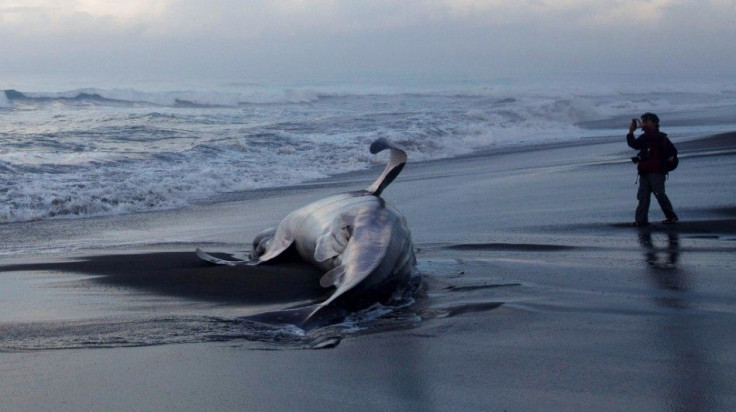Huge fossilised shark teeth wash up on North Carolina beach

Recent high tides and storms near the shores of North Carolina have unleashed two prehistoric fossilised shark teeth the size of a hand. The gigantic teeth are thought to have once belonged to the jaws of a Megalodon shark.
The massive teeth were found washed up at the North Topsail Beach by a beachgoer named Denny Bland. The teeth are nearly six inches long.
An analysis of the fossil by researchers at the Aurora Fossil Museum in Aurora, North Carolina revealed that the teeth once belonged to a Megalodon, which are believed to be the largest sharks that once roamed in the oceans during the Miocene-Pliocene period.
According to a 2014 study published in the journal PLOS ONE, the Megalodon shark became extinct nearly 2.6 million years ago. The Megalodon teeth are believed to be three times stronger than the teeth of the famous predator, the Tyrannosaurus Rex.
According to experts at the museum, a comparative analysis of the shark teeth suggest that every inch of the shark tooth is equivalent to 10 feet of its body. Therefore, six inches of fossil tooth length mean that the length of the shark would have been nearly 60 feet.
The Christian Science Monitor reports that beaches along the North Carolina coast are a well-known trove for fossilised teeth. Earlier, fossilised Megalodon teeth were mistaken for something that had fallen to Earth or the ancient tongues of dragons.
Contact the writer at feedback@ibtimes.com.au, or let us know what you think below.





















